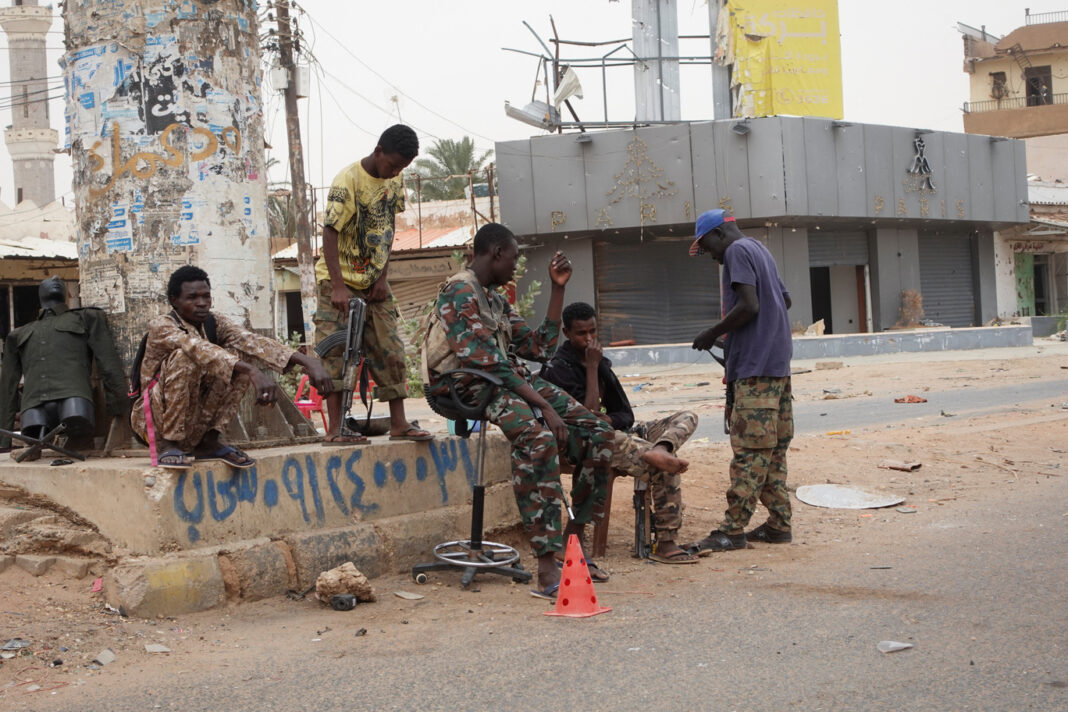Peace in Sudan is not in sight and the country seems to have fallen off the international radar. The UN counts 14,600 deaths, in addition to 8.5 million displaced people. The food emergency is upon us and at least half a million new victims are announced.
It was the morning of April 15, 2023, when shooting started in Sudan.
It was hoped that the clashes could end quickly and leave room for a new agreement for the division of power between the parties, as had already happened other times in the country. And instead, a year later, the civil war has shown no sign of ending and is actually becoming more and more serious.
Twelve months after the start of the conflict, the situation in Sudan is dramatic, first of all because in the background there is no possibility of a ceasefire: the war continues, despite being in a stalemate situation and international attention on what is happening in the African state has long since waned.
Meanwhile, the effects of the clashes become increasingly dramatic. The war affected much of the country, bringing destruction and massacres. And its effects are well highlighted by the numbers: the United Nations counts 14,600 deaths, in addition to 8.5 million displaced people. Two million of these had to abandon Sudan, taking refuge in neighboring countries and especially in South Sudan, a state already characterized by conflict and instability.
The civil war
The civil war began last April in the capital Khartoum, when the Rapid Support Forces – known as RSF – tried to take control of the airport, the presidential palace and the army headquarters.
The regular army responded immediately to the paramilitary group’s offensive, with a clash that quickly spread throughout the city and then to the rest of the country. From the start, it was clear that the clashes between the militia and the army should be read as a power struggle between the two strong men of Sudan.
The armed forces answer to General Abdel-Fattah Burhan, while the RSF is a creation of Mohammed Hamdan Dagalo, a warlord better known as Hemedti. In October 2021, Burhan and Dagalo overthrew the transitional government led by Abdalla Hamdok in a coup, which should soon have given way to a civilian government.
Subsequently, Burhan had taken effective control of the country, allying himself with Hemedti and reaching a power-sharing agreement with him, which lasted until April 2023. Subsequently, the differences between the two parties exploded, leading to the outbreak of the civil war.
A year later
In recent months, however, it has become clear that neither the official army nor the paramilitary militia have sufficient military force to prevail over each other.
And this risks making the civil war even bloodier, denounced the United Nations High Commissioner for Human Rights, Volker Türk, “as the parties in conflict arm civilians and more and more armed groups join the fighting”. In an attempt to defeat rival forces, both the army and the RSF are distributing weapons to civilians and other groups.
At the same time, their military weakness means that neither Burhan nor Dagalo are able to effectively control their allies. The consequence is that in Sudan we are witnessing the proliferation of rebel groups, which only follow their own interests and increase the complexity of the conflict, as well as the difficulty in arriving at solutions.
Famine and migration
If the war developments in Sudan remain complicated to predict, unfortunately it is simpler to understand what the evolution of the humanitarian situation will be in the short term.
Already in recent months the risk of a serious food crisis had been reported, due to the destruction of crops during the conflict and the almost total absence of aid, due to the lack of attention captured by the conflict and the impossibility of having access to a large part of the areas affected by clashes.
Now, however, the country seems to be one step away from famine. “It’s not a term that we humanitarian workers use casually. It is something reserved, in reality, for the most terrible situations. And I fear that the Sudanese people find themselves in precisely this situation,” explained Justin Brady, head of UN OCHA for Sudan.
According to the latest report from the Integrated Food Security Phase Classification (IPC), the country will be hit by acute malnutrition by the summer: this will lead to half a million victims, which could reach up to double according to the most negative scenarios. “Greater aid is fundamental for a conflict which, having already generated the most serious crisis of refugees and displaced persons in the world, risks also turning into the greatest food emergency” underlined Lucia Ragazzi, ISPI analyst, in commenting on the emergency experienced by Sudan .
It was the morning of April 15, 2023, when shooting started in Sudan.
It was hoped that the clashes could end quickly and leave room for a new agreement for the division of power between the parties, as had already happened other times in the country. And instead, a year later, the civil war has shown no sign of ending and is actually becoming more and more serious.




